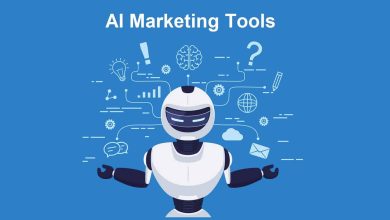
Artificial intelligence (AI) is not just changing marketing, it’s redefining it. Businesses across the UK are increasingly integrating AI-powered tools to enhance customer journeys, optimize campaigns and improve operational efficiency. The race is on to harness AI’s full potential, but success depends on understanding the key drivers of this shift and the challenges that come with it. Those who adapt will lead the future of marketing by 2030, and those who don’t risk being left behind.
Key Drivers of AI Adoption in Marketing
The demand for hyper-personalization is pushing businesses to leverage AI to create tailored experiences at scale. Consumers expect brands to deliver relevant content, product recommendations and targeted advertising, and AI allows marketers to achieve this with greater accuracy and efficiency. Advancements in predictive analytics are also a driving force, as AI-powered models analyze a lot of data to predict consumer behavior, optimize campaigns and allocate budgets more effectively, giving businesses a competitive edge. One in three marketers in the UK has already integrated AI into their workflows, with another 24% currently testing AI capabilities.
The shift to first-party data is another major driver. As third-party cookies phase out and data privacy regulations tighten, AI is helping marketers extract insights from first-party data, ensuring compliance while improving targeting and engagement strategies. Fifteen percent of UK businesses use at least one AI technology, highlighting the growing reliance on AI-powered solutions in modern marketing.
How AI is Transforming Marketing Strategies to Drive Business Outcomes
AI-driven marketing is unlocking new opportunities for data analysis and campaign optimization, directly impacting business growth. Businesses leveraging AI for audience segmentation, content creation and performance tracking gain a deeper understanding of their customers. This allows them to refine their marketing efforts with greater precision, leading to more effective campaigns and increased revenue. The impact of AI on marketing performance is undeniable, as 79% of top marketing executives report a significant boost in ROI through AI-driven strategies.
AI is also transforming content marketing. From AI-generated ad copy to automated social media posts, AI tools are helping brands create high-quality content efficiently while optimizing engagement. These capabilities enable marketing teams to scale their efforts while maintaining consistency and relevance.
AI-powered analytics deliver real-time insights, allowing businesses to pivot strategies and seize emerging trends. Predictive capabilities enhance personalized marketing by anticipating consumer behavior and delivering targeted content. This level of precision boosts customer experience and strengthens brand loyalty. AI is no longer just a competitive advantage but a business necessity in modern marketing, driving measurable results, enhancing customer experience, and keeping brands ahead of the curve in an evolving digital landscape.
Challenges in AI Adoption
Despite its benefits, AI adoption comes with challenges. One of the most significant barriers is data quality and integration, as AI models require clean, structured and comprehensive datasets to generate accurate insights. Fragmented or inconsistent data can lead to unreliable predictions and suboptimal campaign performance. Gartner reports that 85% of AI projects fail due to poor data quality, an issue that businesses must address to maximize AI’s potential.
While AI tools are becoming more accessible, many marketing teams lack the expertise required to implement and manage AI-driven solutions effectively. Businesses must invest in upskilling their teams to bridge the gap between AI technology and marketing strategy, or alternatively, find the right strategic partners to help achieve this.
Data privacy and responsible AI usage are also growing concerns. As AI-driven personalization expands, companies must navigate regulations such as GDPR while ensuring ethical deployment of AI models. Balancing automation with human creativity remains critical. AI enhances marketing efforts, but creativity, innovation, strategic decision-making and brand storytelling still require human oversight.
The Future of AI in Marketing by 2030
AI’s influence on marketing will only deepen. By 2030, we can expect AI-generated hyper-personalized experiences to move beyond segmentation to true one-to-one personalization, driven by AI-generated content tailored to individual preferences and behaviors. AI will also enhance creativity, assisting in ideation and execution to help marketers test and refine campaigns faster and more effectively. With the UK’s strong funding and innovation in AI, the market is projected to grow beyond 20 billion GBP by 2030, showing AI’s increasing dominance in marketing.
Voice and conversational AI are expected to dominate, with brands needing to optimize voice-driven interactions and conversational commerce. After voice video will then emerge as the next major frontier. Fully integrated AI marketing ecosystems will emerge, where AI becomes the backbone of marketing platforms, seamlessly integrating data, analytics, automation and customer engagement into a single system.
Maximizing AI’s Potential for Long-Term Marketing Success
The surge in AI investment within the UK marketing industry reflects its potential to drive efficiency, personalization and innovation. Addressing challenges related to data quality, skills development and ethical AI usage will be key to maximizing AI’s impact. Organizations that prioritize AI integration today will be well-positioned for long-term growth, gaining a competitive advantage through smarter decision-making, more efficient operations and highly personalized customer experiences.
The future of AI in marketing isn’t just about automation, it’s about smarter, more impactful and personalized interactions that drive real business growth. Now is the time for marketers to embrace AI and shape the future of the industry.





